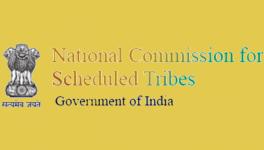Draft EIA Notification: Over 500 Academics and Researchers Ask for Immediate Revocation
With the date of filing objections to the draft EIA notification having been extended, dissenting voices are now growing. The latest are over 500 academics, scientists and researchers from India from across various educational institutes. They have written an open letter to the Ministry of Environment, Forests and Climate Change, listing their concerns with the Draft Notification of the Environmental Impact Assessment 2020.
The signatories are from over 130 research institutes and universities, including the Indian Institute of Science (IISc), Indian Institutes of Science Education and Research (IISERs), Indian Institute of Technology (IITs), National Center for Biological Sciences (NCBS) and the Wildlife Institute of India (WII). The controversial notification has received severe criticism and students, citizens, activists and environmentalists have protested against it across the country for dismantling environmental safeguards in order to promote ‘ease of doing business’.
Limited Circulation, no Distribution in Regional Languages
Aside from highlighting the contentious provisions of the draft, the academics have pointed out the way in which the draft is being pushed on to the public, with no consultation or cognisance of dissent. Their letter stated that the limited circulation and publicity of the Draft Notification, compounded by a lack of its availability in most Indian languages, hindered true and inclusive public participation.
Many traditional communities of rural India, often most affected by such developmental projects, also lack the technology and access to take part in such an exercise.
Asking for an immediate revocation, the academics have highlighted how the notification, in its current form, is likely to seriously threaten the country’s ecological and environmental security. “The Draft Notification neither adheres to the fundamental objectives of its parent legislation, the Environment (Protection) Act, 1986, nor does it align with our country’s commitments under various international agreements and conventions,” they wrote.
On Tuesday, the Delhi High Court issued a notice in a plea to further extend the deadline to file objections to the notification. The application sought an extension of 60 days from the date on which all the translated copies of the Draft Notification become available for the public. The time limit to file objections to the notification was earlier set as August 11.
The full text of their letter is as follows:
An open letter to the Ministry of Environment, Forests and Climate Change
September 2, 2020
We, a group of academics, scientists and researchers engaged in various capacities, express our deep concern regarding India’s sustainable future in the light of the Draft Environmental Impact Assessment (EIA) Notification, 2020 (hereafter ‘Draft Notification’), recently proposed by the Ministry of Environment, Forests and Climate Change (MoEF&CC), Government of India.
As citizens of this country, many of us have sent our feedback and comments on the document by the specified deadline, 11th August, 2020. However, limited circulation and publicity of the Draft Notification compounded by a lack of its availability in most Indian languages hindered true and inclusive public participation. Moreover, many traditional communities of rural India, often most affected by unappraised developmental projects, also lack the technology and access to take part in such an exercise. Considering that the Central Government is currently restrained by Karnataka High Court from publishing the final draft till 7th September, 2020, we find this time opportune to present our chief concerns on the Draft Notification with this press release to further a wider public debate on the subject.
Overall, we have come to the conclusion that the Draft Notification, in its current form, is likely to seriously threaten our country’s ecological and environmental security. The Draft Notification neither adheres to the fundamental objectives of its parent legislation, the Environment (Protection) Act, 1986, nor does it align with our country’s commitments under various international agreements and conventions.
The existing EIA 2006 Notification itself has been deemed insufficient in meeting its stated aims. The undermining of environmental safeguards by non-compliant and unmonitored industries and practices has often led to environmental disasters including overwhelming loss of biodiversity, human lives and livelihood, as happened recently with the Vizag gas leak and the Baghjan oil-well blowouts. Rather than strengthening the EIA process, the Draft Notification tends to promote industrialisation at the cost of the environment. Some of our major concerns are that this Draft Notification:
1. Legitimises ex post facto environmental clearances and encourages industries with no prior clearance to commence operations and eventually get regularised by paying a penalty amount (Clause 22) even after causing an irreversible damage to the environment, which is contrary to the precautionary approach of EIA regulations.
2. Mandates the baseline data collection period to prepare an EIA report for all projects as only one season (except for river valley projects), wherein additional data from the monsoon season is required only if prescribed by the Appraisal Committee (Clause 13(2)) – this is severely inadequate for evaluating the seasonal impact of the project on ecology and the environment.
3. Includes solar thermal power plants, extraction of ordinary earth for linear projects, and maintenance dredging in the list of projects that do not require prior environmental clearances (Clause 26). Without proper understanding of the possible impacts of these projects, when carried out on large scales, such exemptions may negatively affect existing terrestrial and aquatic ecosystems, hamper wildlife movement and fragment habitats.
4. Reclassifies many potentially ecosystem-damaging and even some highly polluting red category industries as ‘B2’ category (p. 37-45, Schedule), thereby exempting them from scoping (Clause 12(1)) and public consultations (Clause 14(2)) and allowing approval based on Environmental Management Plan Report instead of EIA Report (Clause 13(11)).
5. Exempts ‘A’ and ‘B1’ category projects, including many projects listed in red category (such as thermal power plants (p. 37-45, Schedule)) from having to conduct public hearings for modernisation and expansions below 50% (Clause 14(2)) and reduces the minimum notice period for furnishing a public response from an already insufficient 30 days to 20 days (Appendix-I(3)), both of which severely compromise public consultation processes.
6. Allows only project proponents and government authorities to officially report cognisance of violations (Clause 22(1)) and non-compliance of conditions (Clause 23(1)), curbing the rights of any other concerned or affected person.
7. Dilutes post-clearance monitoring by reducing the mandatory compliance report submission by project proponents from half-yearly to yearly (Clause 20(4)).
With the rise in pollution-related health impacts already causing high mortality in India, the importance of having stronger regulations and overseeing polluting industries cannot be overstated.
A report by the Ministry of Earth Sciences, Government of India, published in June 2020, pointed out that rapid changes in India’s climate will worsen the challenges facing us by affecting the country’s biodiversity, food, water, and energy security as well as public health. Since 2016, India has slipped 27 places from its global Environment Performance Index (EPI) rank in 2020, and is now ranked 168 out of 180 countries. Our country’s declining environmental performance mandates immediate pro-environmental and ecologically sound developmental measures, which are not addressed by this Draft Notification.
We, therefore, urge the MoEF&CC to withdraw the Draft Notification and, instead, strengthen the existing EIA Notification with a new proposal, following wider and more inclusive public consultation, preferably after the ongoing pandemic subsides. Such a revised proposal must also incorporate views and suggestions from domain experts and scientists from various concerned fields, with the objective of promoting an eco-sensitive and responsible model of economic growth.
Get the latest reports & analysis with people's perspective on Protests, movements & deep analytical videos, discussions of the current affairs in your Telegram app. Subscribe to NewsClick's Telegram channel & get Real-Time updates on stories, as they get published on our website.
























